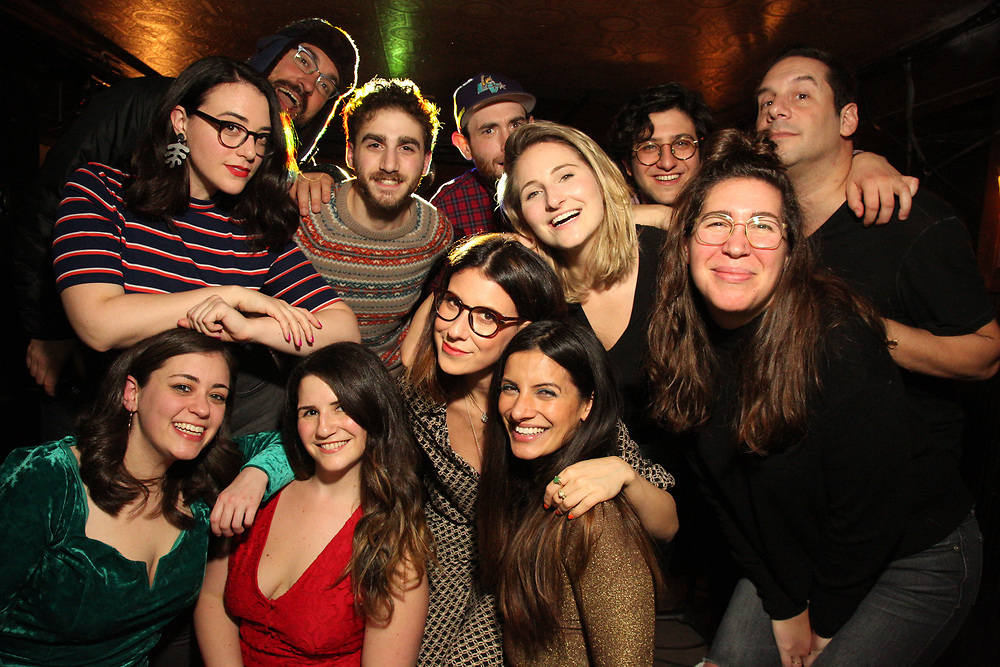When I tell people I’m from New York City, they almost don’t believe it — and yes, by “from,” I mean from from, like I was born in Queens and grew up there, not like “my parents lived here the first five years of my life and then moved away to a suburb” or “I’ve lived in New York City for over 10 years now.”
I’m fortunate enough to come from a long line of New York City Jews, with much family filtering through the tenements on the Lower East Side in the early 1900s to arrive in Brooklyn and Queens. Having returned to New York City after college, I often joke that even if I were to leave New York, as a Jew, there aren’t so many places I could go. “We’re not welcome everywhere,” I say.
Yet the fact that I grew up in the seemingly-liberal bastion that is New York City — and that New York has one of the highest concentrations of Jews in the world — doesn’t mean I was sheltered from the sort of antisemitism that’s prevalent all over the world. In high school, I noticed a swastika drawn on a locker a few doors down from mine; a few girls noticed me trying to wipe it off and explained to me that their friend had dated a Jewish guy who had cheated on her. A few days later, I found graffiti on my locker calling me a “dreidel girl.” This stung, but not as badly as when a guy I was dating in my mid-20s drunkenly called me a “k*ke.”
I’d always been proud and open about my heritage, but as I got older, I felt more self-conscious about my Judaism — not to mention my obviously Semitic last name, which made it impossible to blend in or assimilate even if I so chose. Sometimes I would try to hold off on telling men I was dating that I was Jewish out of fear that this would lessen their interest in me. It feels strange and even pathetic to admit this now, but it’s true.
But when Trump emerged victorious in 2016 and antisemitism, along with hate of all sorts, was surging, I had a kneejerk reaction. Instead of feeling as though I should conceal my heritage, I wanted to celebrate it unabashedly. That November, knowing another season of holiday comedy shows (i.e. Christmas shows) approached, my best friend and comedy partner Ilana Michelle Rubin and I decided to do an all-out, no holds barred, unapologetically Jewish Chanukahstravaganza show. We rounded up some of the funniest Jewish comedians in New York City like Emmy Blotnick, Matt Koff, and Charles Gould, and managed to land the show at Union Hall — the biggest venue we’d performed in to date. Yet only a few days left until showtime, we’d sold few tickets. We expected the audience to consist solely of our friends and family members.
But it was a Hanukkah miracle: We got our first write up in the New York Times, and somehow, the show was completely sold out. We knew that hateful people in our country felt emboldened in a way they hadn’t in decades, and would feel even more so come January 20. Yet on that night — and on other nights to come over the years — we could laugh at and revel in our shared experience, while also learning something new about each other. One of the best things about the show is that it represents a wide swath of experiences. It showcases again and again there’s no one way to be Jewish as we invite both new and repeating (but always hilarious) acts each year.
In the years that followed, the Chanukahstravaganza grew beyond our expectations, helping us raise money for a cause we can all agree is worthy: the care of Holocaust survivors. Though I recognize that there’s no wanting for Jews in comedy or entertainment, the show still felt like a balm of sorts.
It was something we’d cling to as each outing of our show was preceded by an act of aggression against the Jewish people. In 2017, it was Congressional candidate Roy Moore making antisemitic comments on a national platform. In 2018, it was the devastating shooting at the Tree of Life Synagogue in Pittsburgh — not to mention that a few weeks earlier Ilana Glazer had to cancel a nearby event at Murmrr due to antisemitic graffiti appearing on the synagogue’s walls. If I ever questioned whether the show was still needed as a refuge from the minor (lazy, antisemitic jokes from comics, even in alternative comedy spaces) to the major (violence against Jews), these events were a reminder. While “now more than ever” is a phrase that’s been evoked endlessly since March 2020, it came to mind each year when planning the Chanukahstravaganza.
When 2020 rolled around, we couldn’t have the show in person for obvious reasons and elected not to attempt a virtual version, either. This year, we’re elated to once again have the opportunity to perform with our friends and people we admire — something we’ll never take for granted again. While it’s hard to imagine the world ever feeling “normal,” we are grateful for the renewed opportunity to laugh, light the candles, and celebrate without shame.
The Fifth Annual Chanukahstravaganza will take place at littlefield in Brooklyn, NY on December 1 at 8 p.m. Admission is $12, with proceeds from the event going to the Holocaust Survivor Institute. Proof of vaccination required for entry. Tickets available here.



